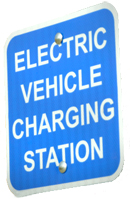CC&R-BYLAW UPDATE REQUIRED?
 QUESTION: Will my homeowners association have to update its documents to conform to the 2014 Civil Code changes including references to past Civil Code numbers?
QUESTION: Will my homeowners association have to update its documents to conform to the 2014 Civil Code changes including references to past Civil Code numbers? ANSWER: No, you don't need to update your documents. You may need to update them for other reasons--because they are badly written, contain Declarant language, are ambiguous about maintenance duties, etc. but changing Civil Code numbers is not one of them.
Renumbering. The most noticeable change in the Davis-Stirling Act is the renumbering. The current Act is found in sections 1350 to 1378 of the Civil Code. The rewrite moves everything to sections 4000 to 6150 of the Civil Code. For example, Civil Code §1350 becomes §4000 starting January 1, 2014. If your CC&Rs and bylaws refer to the old numbering system, there is no legal requirement that you switch to the new numbering system. Since the existing Civil Code numbers roll over to new numbers on January 1, references in your documents automatically flow to the new Code. In other words, your documents don't become obsolete and unenforceable on January 1 because they refer to old Civil Code numbers.
Conversion Chart. All you need is a conversion chart to find the new numbers. Charts can be found on many law firm websites.
Substantive Changes. Also, the handful of substantive changes in the Rewrite are not sufficient to trigger a restatement of your association's governing documents.
RECOMMENDATION: If your governing documents need amending for other reasons then it makes sense to restate them and convert the Civil Code numbers. Talk to your association's attorney about the merits of restating your documents.
ELECTRIC VEHICLE CHARGING STATION

QUESTION: I want to install an electric charger for my car. What does the Civil Code consider an "unreasonable" expense? Since my car is over 100 feet from the meter, it will cost me $4,000 to run electricity & install the charger. Isn't that an unreasonable amount?
ANSWER: The reasonableness of the expense is a matter between you and your electrician. By statute, the association must allow you to install a charging station but the cost is yours not theirs. Following is the relevant portion of the EV statute dealing with reasonableness:
The association is not imposing any unreasonable restriction on you nor did it move the meter so as to drive up your costs. You're simply the victim of sticker shock and you cannot expect your neighbors (the association) to subsidize your costs.(a) ...any provision of a governing document... that either effectively prohibits or unreasonably restricts the installation or use of an electric vehicle charging station in an owner's designated parking space... is void and unenforceable. (b)(2) For purposes of this section, "reasonable restrictions" are restrictions that do not significantly increase the cost of the station... (Civ. Code §1353.9.)
RECOMMENDATION: Before buying that shiny new electric vehicle, owners should investigate the cost of installing the equipment to keep it running.
